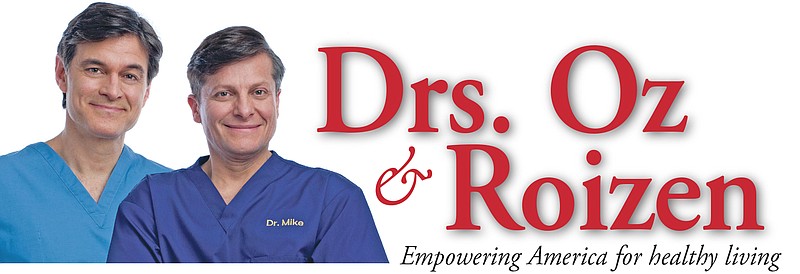Q: I dropped my husband off at a doctor's appointment, and after I drove away, he walked home. He hates going to the doctor. Is there anything I can do to get him to at least get an annual physical? - Debbie K., Lansing, Michigan
A: We hope so, Debbie. Helping men take better care of themselves is a challenge, and not just for you. Research out of Dr. Mike's Cleveland Clinic found that of the 1,170 men 18 years and older who were surveyed, 77% who have a significant other (married or otherwise) would rather go shopping with them than go to the doctor; 72% would rather clean the bathroom or mow the lawn!
The survey was part of the clinic's "MENtion It" campaign, and it shines a light on how many of men's health problems, from heart disease to cancer, can result from not getting a needed check-up. Like Ben Franklin said, "An ounce of prevention is worth a pound of cure." Our advice: Talk to the guy in your life about the risks of not going.
But if protecting his health isn't enough to convince him, maybe he'll care more about protecting his wallet. When a man blocks his chance of early diagnosis, he's going to end up unnecessarily spending a lot of Ben Franklins on treatment for advanced health issues.
Why Men Are Reluctant
The researchers found that many men have been told since childhood not to complain about health issues. The guys also told them:
They don't want to hear bad news. (Putting it off could make it far worse.)
They don't want to be told to change their lifestyle. (It can happen in small steps.)
They have a general feeling of embarrassment. (The doctor's heard it all.)
They don't like to go where there are so many sick people. (The Cleveland Clinic has virtual visits; other hospitals do too.)
Q: I recently heard that omega-3 supplements don't really provide any cardiovascular benefits. But I take 900 mg almost every day, because I thought they did. Which is it? - Audrey B., Roanoke, Virginia
A: Info on omega-3 supplements can be confusing. Many randomized control studies have lacked consistency, partly because they weren't large enough to cover a broad-based population. However, the most up-to-date information is from researchers at the Harvard T.H. Chan School of Public Health, and Brigham and Women's Hospital. The researchers concluded that omega-3 supplementation significantly lowers death rates from heart attack, and total coronary vascular disease. Even though the researchers agreed that "two reviews published last year did not find clear evidence for [heart disease] benefit [from omega-3s]," the scale of this metastudy let them come down on the side of "significant protective effects against most CVD outcome risks."
Mehmet Oz, M.D. is host of "The Dr. Oz Show," and Mike Roizen, M.D. is Chief Wellness Officer and Chair of Wellness Institute at Cleveland Clinic. Email your questions to [email protected].
Michael Roizen, M.D. and Mehmet Oz, M.D.

